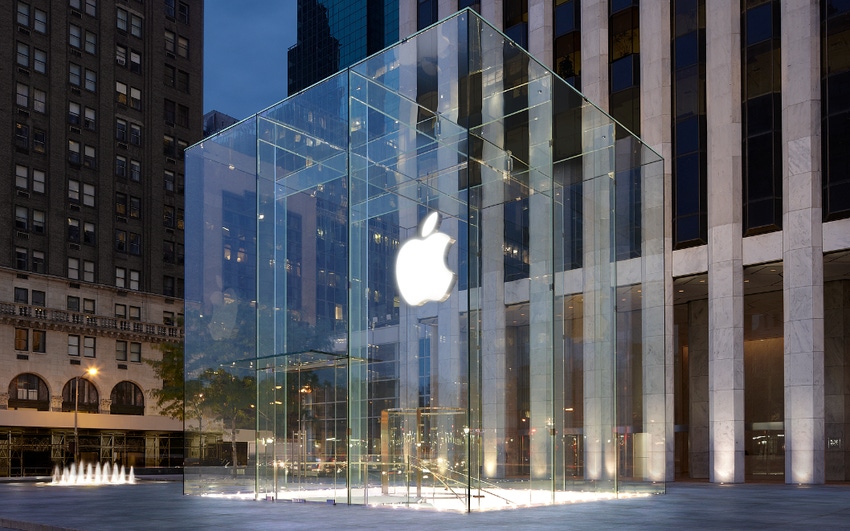On the day Counterpoint Research estimated Apple collected 86% the total handset market profits in Q4, rumours have resurfaced about the firm wandering further into the world of news service subscriptions.
April 18, 2018

On the day Counterpoint Research estimated Apple collected 86% the total handset market profits in Q4, rumours have resurfaced about the firm wandering further into the world of news service subscriptions.
According to Bloomberg, the iChief is preparing to launch a new subscription-based offering for its Apple News service, integrating the recent acquisition of Texture into the mix. The new venture will form part of a greater push from the firm into online content and services, to generate additional, sustainable revenue.
Apple has had a news service application for some time now, but like most of the iLeader’s efforts to crack the content game, it has been pretty substandard. Last month the firm agreed to acquire Texture, a news aggregator platform which allows users to subscribe to more than 200 magazines for $9.99 a month. Apple is yet to comment on the upgraded app and service, though people familiar with the project estimate the service should be available within a year.
Previous attempts to bring news to the iFollowers have not been great. Newsstand was previously launched as an aggregator platform, though users had to subscribe to the titles on an individual basis. Apple News was launched in 2015 with a similar approach, and the fact no-one really talks about it tells you how much of a success it is. The Texture model, a subscription point for multiple titles, is a much more cohesive approach and will have greater appeal to today’s users.
Titles currently included in the Texture catalogue include All About Beer, Bloomberg, Wood, Diabetes Self-Management, National Geographic, Veranda, Forbes and Fit Pregnancy and Baby. There is certainly something for everyone.
The services unit at Apple accounted for 13% of total revenues in the last quarter, but what should be noted is that this isn’t simply the content and subscription businesses, insurance takes up a large chuck of the revenues. Other products include the App Store, iTunes Store, Apple Music Subscriptions, Apple Pay, iCloud Storage Costs, as well as AppleCare. Getting into the recurring revenue business is certainly a good bet, and positioning itself as an aggregator would seem like the best strategy when you look at the original content it has developed so far.
The team are supposedly aggressively producing new content, perhaps to gloss over previous attempts. The first attempt was ‘Planet of the Apps’, essentially a ‘Dragons Den’ rip-off for apps, and it was truly shocking. Carpool Karaoke was equally as cringe-worthy, as the Apple team took liberties with the definition of ‘original’. More recent attempts have seen Stephen Spielberg drafted in for a reboot of ‘Amazing Stories’, as well as a futuristic drama from the director of the Hunger Games films Francis Lawrence.
These efforts look more promising, but Apple isn’t doing anything revolutionary or new, just re-scripting stories which have already been told. This isn’t how the content production world works; risks have to be taken to find the next ‘Breaking Bad’, ‘West World’ or ‘Stranger Things’.
Apple has long spoken about the objective of cracking the software, services and content space, as a means to supplement the hardware business, but when you look at market estimates it certainly comes across as long-term planning; there is no need right now!
That said, while profits in the global handset market declined by 1% year-on-year, according to estimates from Counterpoint Research, Apple accounts for 86% of profits made across final quarter of 2017, with the iPhone X accounting for 35% alone. In terms of the profit share by handset model, Apple accounted for eight out of the top ten worldwide. The team also claim the iPhone X generating five times more profit than the combined earnings of 600+ Android OEMs during Q4 2017.
Competition seems pretty thin on the ground for Apple, as while Samsung has the dominant market share position, it simply can’t compete with the luxury positioning of the Apple brand. The brand has been a delicate and intricate development over the last decade, however it is certainly paying off. It seems it doesn’t matter what the iLeader asks for, its army of loyal, iCultist followers will pay it. Some might be locked into the ecosystem, but the majority are the blind followers, worshipping at the altar.
The smartphone space is becoming less profitable as more users are holding onto devices for longer, before searching for cheaper deals with second-hand and refurbished phones, but that will mean little to Apple. As long as it is taking the vast majority of profits from the industry it will be in a healthy position; it will still make billions upon billions. If it does manage to figure out how to do content and services, the decreasing profitability of the handset market will matter even less.
About the Author(s)
You May Also Like








.png?width=300&auto=webp&quality=80&disable=upscale)


_1.jpg?width=300&auto=webp&quality=80&disable=upscale)


.png?width=800&auto=webp&quality=80&disable=upscale)